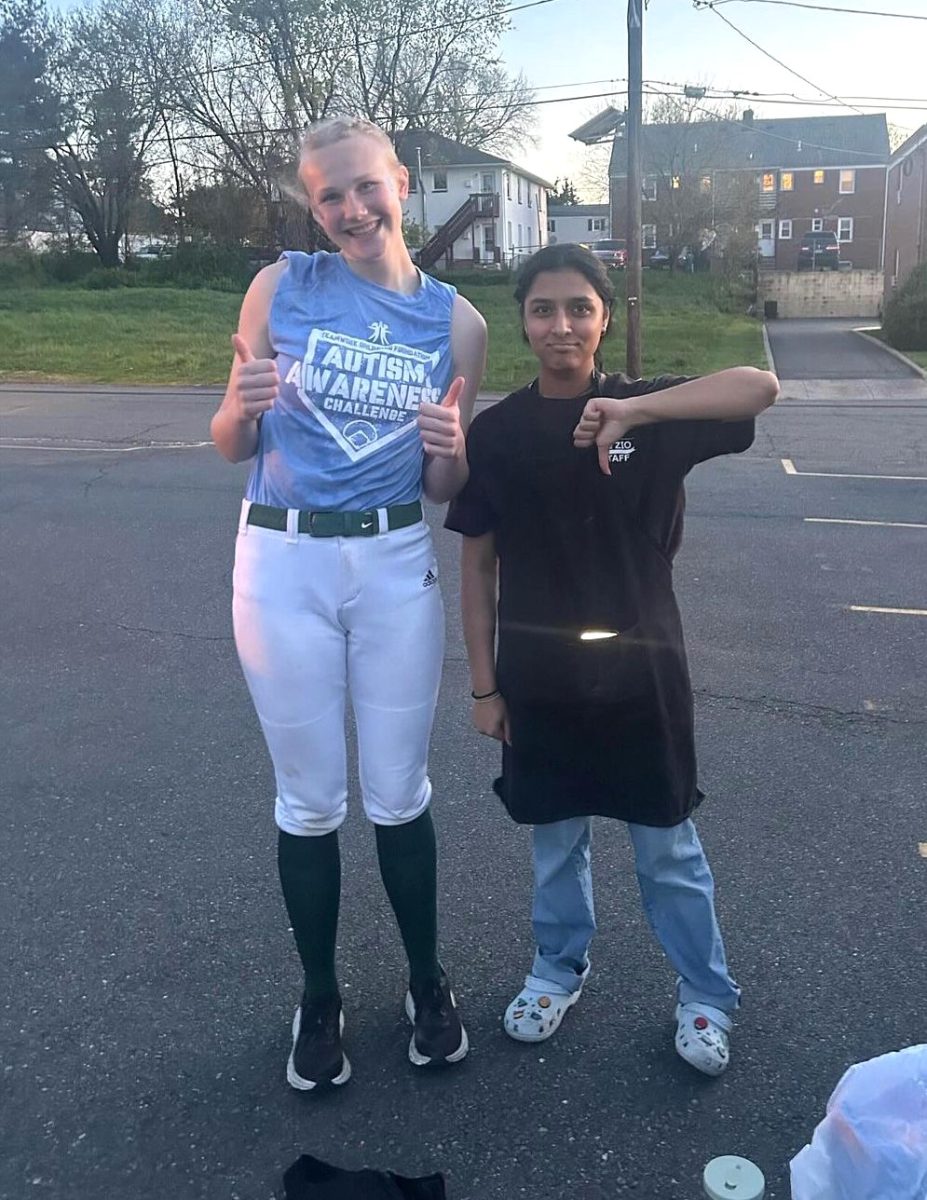Think of one of your favorite artists- and then think of the genre they perform in. Is it just one genre, or do they shift between genres? Chances are it’s the first one. Most artists find it easier to stick with one genre, as it is easier to create a specific image of how the public should perceive them. Artists with a softer, jazz sort of feel like Bruno Mars and Laufey are known for that music. Artists who are known for singing and writing only love songs, like Taylor Swift or Frank Sinatra are known for that – on the flip side, many artists only perform sad songs- Billie Eilish and Olivia Rodrigo. These artists stick to their comfort zones, creating a curated image for themselves. But just like how those artists stick to one thing, many artists don’t do that! And I believe we all know who the absolute funniest music shift of the century – JoJo Siwa.
Putting all the Brit Smith and Jojo Siwa beef aside – JoJo’s slow but sure shift from kiddie music to dance-pop (according to Google), has been a monumental change. She’s done everything she can – physically – to seem like some sort of punk icon, but her bubbly personality is something she simply can’t push under the rug. Another persona shift in modern media – one that is not as humorous as JoJo’s, but just as iconic and successful is Beyoncé. She turned into a country music star overnight following the release of “Cowboy Carter.” Unlike JoJo Siwa, people seem to be taking her shift quite seriously. The general consensus is that Beyoncé is now a modern-day cowgirl, and they’re all in awe. These changes tend to be drastic for people who enjoy mainstream pop. Watching your favorite artists divulge into a genre you might not like are scary waters to tread. But some music enthusiasts go through these changes nearly every month – these music enthusiasts are K-pop fans. And if you know me, you know I’ll bring up K-pop at any chance I get – and so let me explain to you the deal with K-pop groups. Every new release (which is called a comeback in the K-pop community) that they come out with entails a new ‘concept,’ which is based on the title track of that release alone. Take, for example, Sabrina Carpenter’s new single ‘Espresso,’ which would be considered a beach/summer concept, just like TWICE’s song ‘Alcohol-Free’. With each comeback that a group has, the concept and the genre of their music change monumentally.
Let’s explore this idea with the title tracks of one of my favorite groups – TOMORROW X TOGETHER (TXT). To make this explanation short and quick, we’ll just evaluate TXT’s minisodes, which are their mini-albums. TXT has a very storyline-based discography, and while unfortunately, we’ll be missing out on key details of their ‘lore,’ we can still get an insight into how K-Pop groups’ music changes so quickly. And the easiest way to get my point across is through the music video for the title track of each minisode – that is a bit of a mouthful, but stay with me here. The first minisode TXT released was called Blue Hour, and it’s title track shared the same name, if you watch the music video, you will see carnival rides, bright colors, soft pastels for the members’ clothing, and even the dance seems unserious and silly. The lyrics are wholesome and romantic, and it’s the epitome of a boy crush song. TXT’s second minisode is called Thursday’s Child, and it’s title track is called “Good Boy Gone Bad.” If you play the music video you’ll be greeted by an incredibly emo scene, one of the members laying down in a bed of dead roses. The imagery consists of them being in various dark alleys, reveling in their hurt emotions, and even the choreography is supposed to be messy and erratic. The chorus features these lyrics “A scar on my chest gone bad; Slash my heart, thеn gone dead; Who you knew that good boys gone bad?”. TXT’s third and most recent minisode is called TOMORROW, in which the members sing to their past selves in the title track “Deja Vu.” If you watch the music video, you’re met with imagery that makes you feel a sort of nostalgia and forces you to sort of think about your past. There’s more despair in this song than anger. But before I start talking too much about TXT, I want to come back to the main point- these minisodes are not spaced out by a whole lot of time. There’s at most a one-year gap between the minisodes and yet the concepts are so vastly different. To someone who doesnt listen to K-Pop, and doesn’t understand the rapid concept shifts, this would seem a little bit weird.
People who listen to mainstream music, whether that be pop or rap or hip-hop, drastic changes in an artist’s concept are a weird thing to them – and so they themselves find it quite hard to change or experiment with their own music taste. For mainstream artists, it’s a risky change, especially since their livelihoods are made on the idea that the audience will like them consistently no matter what music they make. Sometimes this isn’t true, and sometimes it is. I hope that with more releases from The Pulse, you, the reader, will find it in you to take a little risk today. Listen to a different genre of music, and try out a new song or a new artist!









